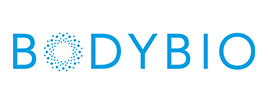@justinestenger shares some of her favourite ways to add EFA’s and PC into your food.
By now I hope most of you understand the importance of essential fatty acids and also the importance of phosphatidylcholine. Let’s do a quick overview – essential fatty acids cannot be made by the body, so it is critical that we get them from the foods we eat. Phosphatidylcholine is a phospholipid that is a major building block of membranes, also an essential nutrient that we must either get from food or from the components of the food we eat. This lipid is a key player in maintaining structure, integrity, stability, and flexibility of our cell membranes*. The integrity of our cell membranes is the foundation of our health.
Let’s start by talking about Linoleic Acid – one of the major omega 6 fatty acids. Linoleic acid, like all essential fatty acids, is considered essential because it cannot be synthesized by the body. One important function of Linoleic acid is for mitochondrial/energy support because a major phospholipid in mitochondria is cardiolipin that requires 4 Linoleic fatty acid tails. Downstream from linoleic acid, created by desaturation and elongation, are gamma-linolenic acid (GLA found in evening primrose oil and organ meats), and dihomo-gamma-linolenic acid (DGLA and an eicosanoid). Another major omega 6 fatty acid is arachidonic acid (AA, found in egg yolk, butter, cream, meat fat). All of these omega 6 fatty acids play a role in gene regulation inside the cell. WOW, if that’s not important, I am not sure what is! AA is especially plentiful in the brain, and is of such importance that it is essential to human brain development. After we have been breastfed, Arachadonic acid levels from the diet drop dramatically. DGLA and AA are eicosanoids which are precursors to prostaglandins that evolve into important mediators for immunity and immune response. AA forms Lipoxins, one of the anti-anti-inflammatory lipid mediators we are starting to hear so much about. Omega 3 fatty acids form resolvins, protectins, and maresins. We need to ensure that we are getting enough omega 6 fatty acids in balance with omega 3 fatty acids from the food that we eat. That takes some work. I am going to help you with a plan to ensure that you are getting in adequate amounts of Linoleic acid, because this critical fatty acid has been depleted in our food supply without our even knowing it by the replacement of high-oleic acid hybrid oils rather than seed oils that are naturally high in essential fatty acids. Now to the fun part – I am going to show you some recipes so it’s seamless for you to incorporate this fatty acid at every meal.
Login to the FxMed Practitioner Hub to view these recipes!
Justine Stenger is passionate about helping people live their healthiest, best life with a focus on using nutrition to improve cognitive functioning. She has her B.Ed Nutrition Food Science/Human Ecology, is Institute For Functional Medicine Trained Diet Specialist, is a Certified Functional Medicine Health Coach and is a Certified GAPS Practitioner.
Share:
Related Posts

Benefits of Creatine in Perimenopause and Menopause
Written by Maura MacDonald, MS, RD, CSSD | 2025 As we age, the notion is that we will inevitably become weaker. Not as mobile as

Goodbye Pie Chart, Hello Phase 1 Sliders
Written by Allison Smith, ND | 2025 As we usher in a new era of DUTCH testing which leaves behind the concept of the three-way

Introducing the DUTCH Dozen
Written by Kelly Ruef, ND | 2025 Hormone testing can be complex, which is why Precision Analytical developed the DUTCH Dozen, an interpretive framework that

DUTCH Report Enhancements
Written by Hilary Miller, ND | 2025 Precision Analytical have released the newest version of the DUTCH Test. This is the report’s most significant update

Gallbladder Health 101: What It Does and How to Keep It Working Well
Written by Ashley Palmer & Pooja Mahtani | 2025 The gallbladder may not get much attention compared to the gut, but it plays a central

